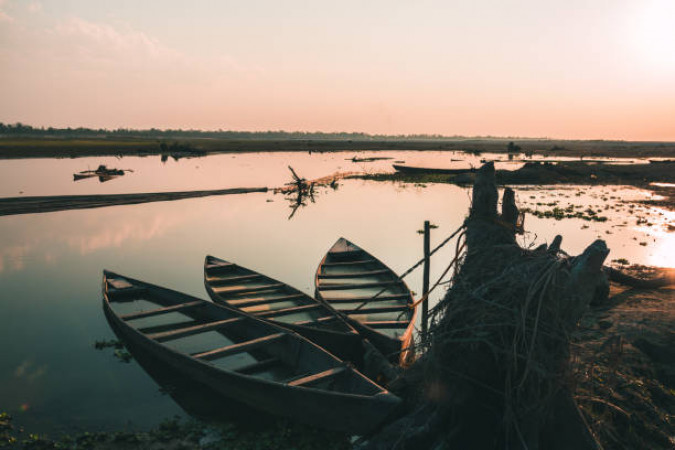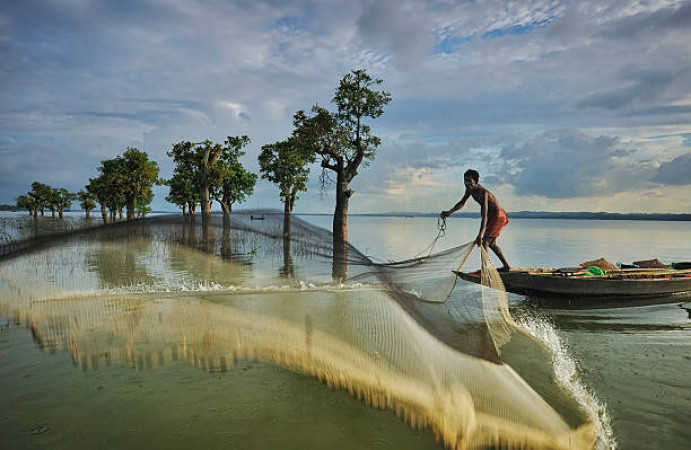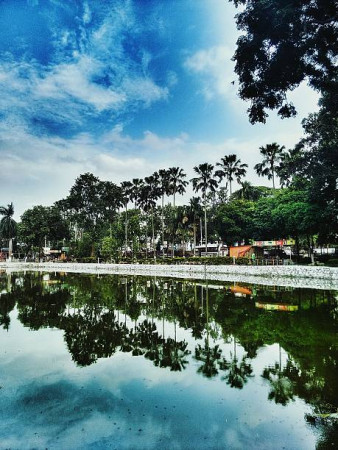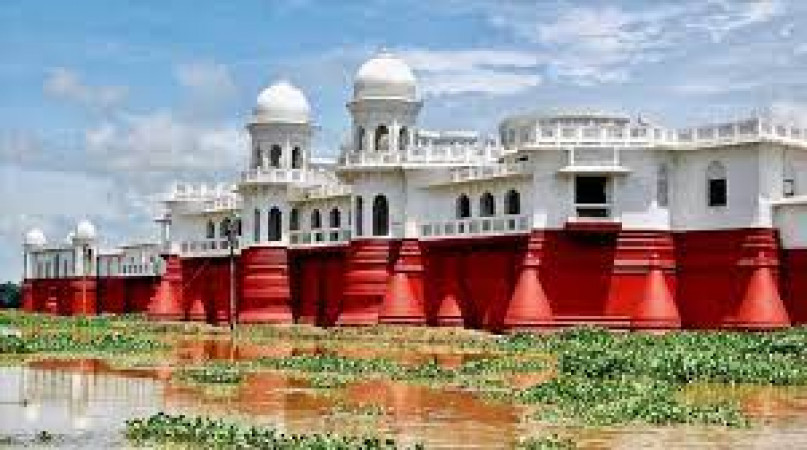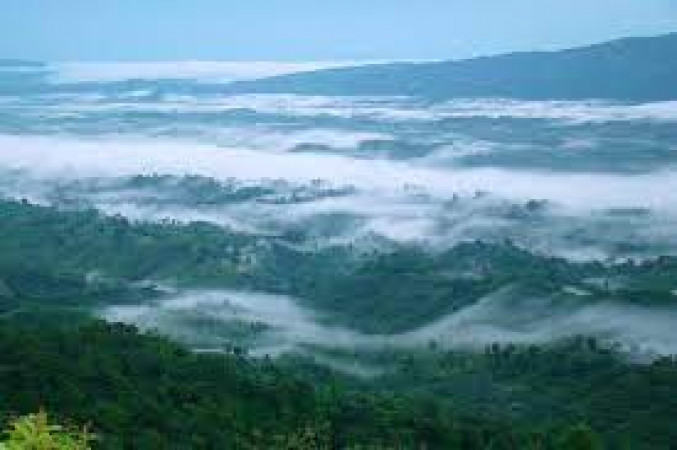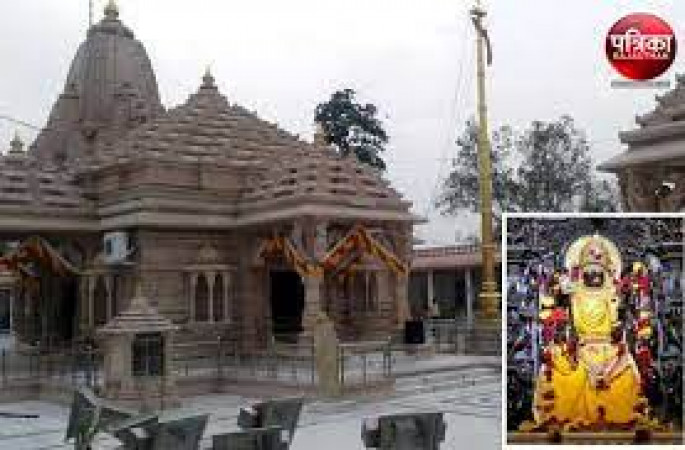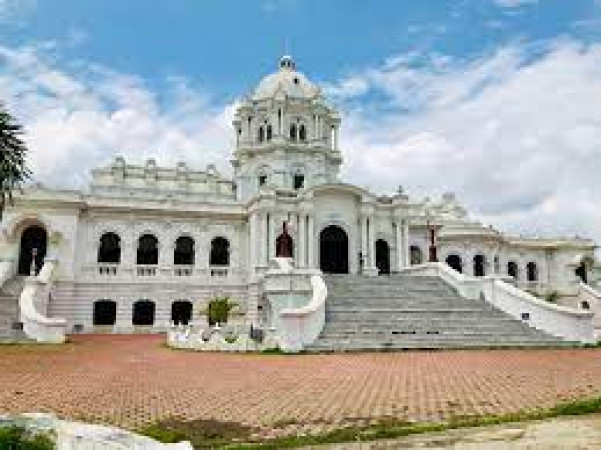Tinsukia Travel Guide
Tinsukia, located in the northeastern state of Assam in India, is a picturesque destination known for its lush greenery, tea gardens, and rich cultural heritage. The town is situated on the banks of the Brahmaputra River and is surrounded by the beautiful Dibru-Saikhowa National Park. Tinsukia has a significant historical background, with influences from Ahom kings and British colonial rule. It is also famous for being the commercial capital of Assam due to its thriving tea and oil industries.Top Attractions in Tinsukia
- Dibru-Saikhowa National Park
- Bell Temple
- Maidams of Ahom Kings
- Digboi Oil Refinery
- Raidongia Dol
Tinsukia is Famous for
Tea gardens and oil industries.Top Attractions in Tinsukia
- Explore the diverse wildlife at Dibru-Saikhowa National Park
- Visit the unique Bell Temple with its melodious bells
- Discover the ancient history at Maidams of Ahom Kings
- Witness the oldest oil refinery in the world at Digboi
- Experience the serenity of Raidongia Dol
What's Great about Travelling to Tinsukia?
- Perfect destination for nature lovers
- Opportunity to explore Assam's tea heritage
- Rich historical and cultural experiences
What's Not So Great about Travelling to Tinsukia?
- Limited luxury accommodation options
- Remote location may not appeal to all travelers
- Mosquitoes can be a nuisance in certain areas
Travel Tips for Tinsukia
- Carry mosquito repellent for outdoor activities
- Respect local customs and traditions
- Be prepared for varying weather conditions
Important Tinsukia trip information
- Ideal Duration: 3-4 days
- Best Time to Visit: October to March
- Nearby Airports and Railway Stations: Dibrugarh Airport, Tinsukia Railway Station
Top 13 Places to visit in Tinsukia
FAQ's on Tinsukia
Q1: What is the best time to visit Tinsukia?
The best time to visit Tinsukia is during the winter months from November to February when the weather is pleasant and cool. This time is ideal for exploring the outdoors and enjoying sightseeing without the discomfort of extreme heat or rain. Additionally, this period coincides with several festivals and cultural events, adding to the vibrant atmosphere of the region.
Q2: Do I need a visa to travel to Tinsukia?
Travelers to Tinsukia need to obtain an Indian visa to enter the country. Depending on your nationality, there may be specific visa requirements, so it is advisable to check with the Indian embassy or consulate in your country for the most up-to-date information. Some nationalities may be eligible for e-Visas or visa-on-arrival facilities, but it is essential to confirm this before your travel.
Q3: What are the must-visit attractions in Tinsukia?
Tinsukia boasts an array of attractions, including the mesmerizing Dibru-Saikhowa National Park, the historic Bell Temple, and the picturesque Joypur Rainforest. Visitors should not miss the Digboi Oil Refinery, the oldest in Asia, and the beautiful Digboi Centenary Museum. Nature lovers can explore the enchanting Maguri Beel Wetland and witness the diverse birdlife. The unique culture of the Ahom dynasty can be experienced at the ancient Tilinga Mandir. Adventure enthusiasts can also trek to the stunning Tikowam Pukhuri Lake for a memorable experience.
Q4: Is Tinsukia a safe place to travel?
Tinsukia is generally a safe destination for travelers; however, it is essential to exercise caution and be aware of your surroundings, especially in crowded areas or at night. It is advisable to avoid isolated areas and take necessary precautions to safeguard your belongings. Travelers should stay informed about local news and follow any travel advisories that may be in place. By being mindful of your surroundings and respecting local customs, you can enjoy a safe and memorable trip to Tinsukia.
Q5: What is the local currency in Tinsukia and can I use credit cards?
The local currency in Tinsukia is the Indian Rupee (INR). While credit cards are accepted at some hotels, restaurants, and larger establishments, it is advisable to carry cash for transactions in local markets, smaller shops, and transportation services. ATMs are available in urban areas for convenient cash withdrawals. It is recommended to inform your bank of your travel plans to avoid any issues with card usage and currency exchange.
Q6: What is the local cuisine like in Tinsukia?
Tinsukia offers a delightful culinary experience with a blend of Assamese, Bengali, and tribal influences. Must-try dishes include Aloo Pitika (mashed potatoes), Masor Tenga (sour fish curry), and Pitha (traditional rice cakes). The region is known for its aromatic teas, so be sure to savor a cup of Assam tea. Vegetarians can enjoy dishes like Khar (alkaline preparation) and Ou Khatta (elephant apple curry). Seafood lovers will appreciate the fresh river fish preparations. Don't miss out on the local sweets like Narikol Pitha (coconut rice cake) and Pani Pitha (rice flour dumplings in jaggery syrup).
Q7: What transportation options are available in Tinsukia?
Tinsukia offers various transportation options for travelers, including buses, auto-rickshaws, and cycle rickshaws for short distances within the city. Hiring a taxi or renting a car is convenient for exploring nearby attractions. Public buses connect Tinsukia to neighboring towns and cities, offering an affordable mode of transportation. For long-distance travel, trains are a popular choice with connections to major cities in India. Travelers can also opt for intercity buses or private cabs for comfortable journeys. It is recommended to plan your transportation in advance to ensure a smooth and enjoyable travel experience in Tinsukia.
Q8: Are there any cultural norms or etiquette I should be aware of when visiting Tinsukia?
When visiting Tinsukia, it is important to respect the local customs and traditions of the Assamese culture. Greeting people with a 'Namaskar' or 'Sualaiman' is considered polite. Dress modestly, especially when visiting religious sites or rural areas. Removing shoes before entering someone's home is a common practice. While dining, it is customary to wash your hands before and after the meal. Avoid touching someone's head, as it is considered disrespectful. Participate in local festivals and cultural events with an open mind to immerse yourself in the rich heritage of Tinsukia. By showing respect for the local customs and traditions, you can create meaningful connections with the hospitable people of the region.
Q9: I am a travel agent. How can I buy travel leads of Tinsukia?
Register yourself as a travel agent at agents.tripclap.com and then you can buy travel leads to Tinsukia once your account is approved. For more details contact our support team at +91-8069186564 or support@tripclap.com
